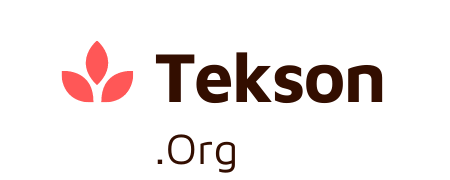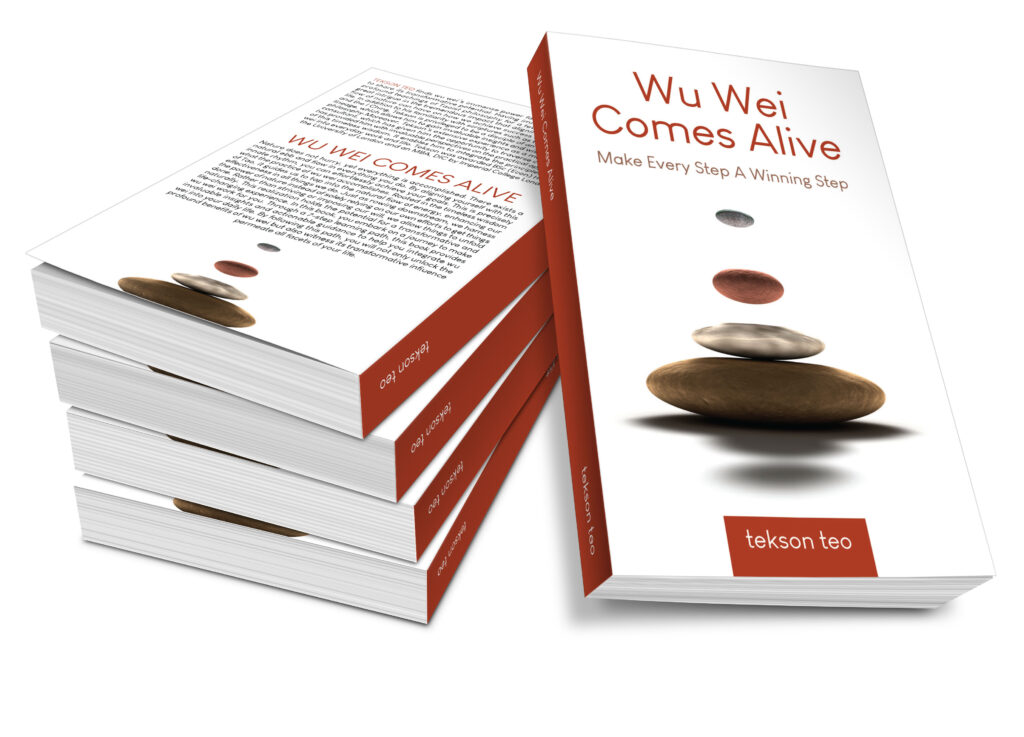Define Wu Wei – Going With The Flow of Nature
Define Wu Wei
To define Wu Wei 无为 in English is like trying to bottle the wind. Translated as “doing nothing” or effortless action, it is an ancient Chinese concept far deeper than mere idleness. It’s a philosophy born from the Tao Te Ching, a 2,500-year-old text penned by Lao Tzu.
Think of Wu Wei as rowing a boat downstream. It is effortless but highly effective. You don’t force your way. You take the path of least resistance by going with the flow of the current. By working with the natural order, not against it, you get more done with less, or even no, effort. .
Wu wei equips you to navigate challenges with a calm mind and achieve goals seemingly effortlessly. It’s the secret sauce behind the focused artist effortlessly lost in creation or the athlete moving in perfect harmony with their body.
In our frenetic world, wu wei offers a powerful antidote. Lao Tzu reminds us, “By letting go, it all gets done.” This age-old wisdom might seem deceptively simple, but that’s precisely its beauty. Wu wei isn’t a complex strategy; it’s a profound shift in perspective, one that can unlock effortless effectiveness in a world obsessed with striving. It’s the sculptor wielding the chisel with such practiced ease that the marble surrenders its form.
Wu wei may be ancient wisdom, but its relevance transcends time. In today’s frenetic world, mastering wu wei is not a luxury; it’s a necessity for a calmer, more productive you.
So what is wu wei?
Meaning of Wu Wei
Wu Wei, a concept rooted in Taoist philosophy, suggests aligning your actions with the natural flow of things. When you identify this flow and move harmoniously, you tap into a powerful force that makes action effortless. Like surfing, you ride the tides by going with the flow of the current. You’re still putting in effort, but with the current propels, your effort is just a part of the flow. By aligning with nature’s power, your actions become more efficient and less strenuous.
Confusion might arise here: “Do nothing, and leave nothing undone,” says Lao Tzu. Now, you might wonder why Lao Tzu calls this practice “doing nothing”? After all, you’re still taking action.
Absolutely! The word “nothing” in this context needs clarification. In the Tao Te Ching, where Wu Wei originates, “nothing” refers to acting without forcing, without going against the natural order. It’s about working with nature, not against it. It has to do with the concept of the formless Tao.
The Formless Tao – The Unseen Order of the Cosmos
Within the Tao Te Ching, “nothing” takes on profound meaning, intricately linked to the core concept of Tao itself. Despite the vastness of the cosmos, a remarkable harmony persists. Stars and planets coexist peacefully. What unseen force orchestrates this order?
The answer lies in a dark, silent, and unifying force: the Tao. It is all-encompassing, ever-present, yet ineffable. Although its essence remains a mystery, Lao Tzu offers “Tao” as a name, recognizing the freedom to use other terms. This silent, almighty force governs even the immensity of the universe.
As Lao Tzu marvels, “Something nebulous predates the universe. Serene and desolate, it stands alone and unchanging. Ever-turning, it could well be the mother of all creation.” The Tao permeates everything – the rising sun, the birdsong, the whispers of loved ones.
Despite its omnipotence, the Tao remains unseen, unheard, and untouched. It is a void, formless. For our comprehension, Lao Tzu uses the seemingly paradoxical term “nothing,” or “wu” (无) in Chinese. This “nothingness” is what wu wei (“doing nothing”) implies.
Therefore, “doing nothing” doesn’t equate to inactivity. It means aligning oneself with the formless Tao to navigate the world. We can achieve far greater results by working in harmony with this powerful force.
Go With the Flow of Nature
The flow of nature is the very essence of the Tao, that formless yet powerful force. When you align yourself with this flow, you move in harmony with the universe itself. Often, effortless action becomes the most effective course. Backed by the unseen power of the Tao, you can achieve more with less struggle.
This principle transcends fields. Whether in the arts, sports, or the pursuit of knowledge, aligning with the natural flow unlocks excellence. By cultivating a state of calm receptivity, mirroring the ease of nature, performers unlock their full potential.
Peak performers understand the power of effortless action. When they flow naturally, their performance dreams. Conversely, forced actions lead to stumbles. This state of effortless mastery, although not always labeled as such, embodies the essence of wu wei.
At its core, wu wei reflects a deep respect for nature’s inherent order. The Tao Te Ching famously states that the Tao “follows nature.” This resonates with the concept of wu wei, as both encourage alignment with a natural flow.
The Dance of Nature: A Reflection of the Tao
However, you might ask: if the Tao is formless and invisible, how can we possibly work with it? The answer lies in its manifestations. Just as we can’t directly observe electricity but see its effects when it lights a bulb, we can perceive the Tao’s influence in the natural world.
At its core, wu wei reflects a deep respect for nature’s inherent order. The Tao Te Ching famously states that the Tao “follows nature.” This resonates with the concept of wu wei, as both encourage alignment with a natural flow.
However, you might ask: if the Tao is formless and invisible, how can we possibly work with it? The answer lies in its manifestations. Just as we can’t directly observe electricity but see its effects when it lights a bulb, we can perceive the Tao’s influence in the natural world.
The Tao, the unseen force behind creation, permeates everything. From the houses we inhabit to the food we consume, all are manifestations of this universal order. We observe the Tao in action through the intricate behaviors of the natural world.
However, these reflections can be distorted. The more a manifestation remains pure and unadulterated, the truer its reflection of the Tao. Nature, particularly in its untouched state, stands as the clearest mirror. Witnessing the earth nurturing crops and rain watering the land, we grasp the immense power within and the Tao’s guiding hand.
This inherent power explains why aligning with the natural flow is so powerful. Wu wei encourages us to do just that. By respecting and working with nature, we harness the Tao’s power, making our actions more effortless and effective. Nature becomes a powerful partner, reminding us that we are part of the flow, not its master.
Like a kite dancing in the wind, we may exert some control, yet ultimate mastery remains elusive. The kite soars freely, enjoying the ride but not dictating its course. The kite flyer, while experiencing joy in guiding the kite, must adapt to conditions like wind speed and string strength.
Similarly, when aligning with the flow, relinquishing ego is paramount. We achieve results by cooperating with nature, not controlling it.
Wu wei isn’t merely about getting things done; it’s a life approach. By embracing its wisdom, we navigate life’s currents – whether seeking opportunities, quenching our thirst for knowledge, or thriving in competitive environments – with a calm and centered approach. Stress and anxiety associated with forceful action fade away.
Ultimately, wu wei fosters inner balance, present moment awareness, and a life lived to the fullest. Harmony with the universe enriches our very existence.
Meaning of Wu Wei – How You Can Make the Wisdom Yours
The practice of wu wei has captivated many for centuries, myself included. After decades of exploration, I’ve developed a four-step approach to help you integrate wu wei into your daily life. Get ready to embody the essence of effortless action and experience the profound benefits it brings.

